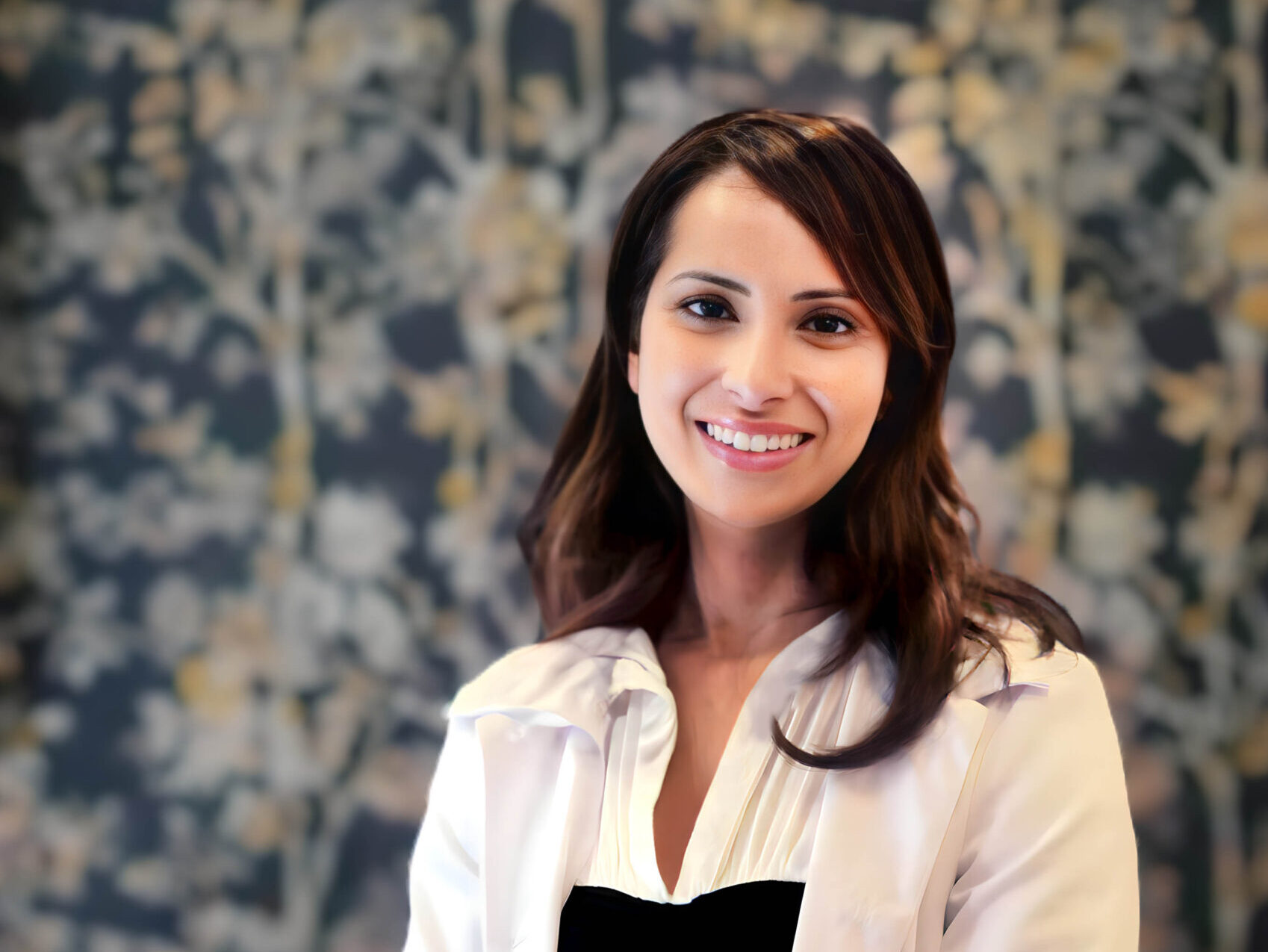Dr. Monica Grover’s compassion and curiosity are the driving force behind her patient-centered, individualized approach to care
The first thing you notice when you walk into Dr. Monica Grover’s Yorktown office is how little it resembles a doctor’s office. There’s no antiseptic smell, no buzzing fluorescent lights, no stiff-backed chairs. Instead, you’re greeted by a plush gray sofa, a glass coffee table and soft lighting that bounces gently off elegant wallpaper and carefully chosen artwork. The space feels more like a boutique spa than a medical practice—and that’s entirely intentional.
“I want patients to feel at ease the second they walk in,” Grover says. “When you feel like you’re being taken care of versus being treated, it changes the tone of the entire visit.”
Aesthetics aside, that tone is reinforced by Grover’s warmth, empathy and deep respect for the doctor-patient relationship. A double board-certified physician in both family medicine and obstetrics, Grover has built a practice that blends clinical expertise with a personalized approach to care—one that makes patients feel heard, seen and truly understood.
A little girl with big dreams
Grover was four years old when she decided to become a doctor, inspired by the stories about her grandfather, a village doctor in India. “The villagers didn’t have a lot of money, so they would barter with him,” she explains. “My grandfather appreciated anything they gave him, and it seemed like such a very special role. I wanted to help people just like he did.”
“And I also wanted to be a princess,” Grover adds with a chuckle. “So, I thought maybe I could combine the two together—a princess doctor. But Kate got to Prince William first, so I moved on.” Grover also developed a deep love for the arts as a child, regularly drawing on the walls of her house. Those “murals” often included one specific thing: a house with a bridge connecting it to a hospital. “I would tell my mom, ‘Any time a patient needs me, I can just quickly cross over,’” she remembers.
When not redecorating the walls, Grover spent time wondering about the human body. “I was determined to figure out how it is that we can see people and hear them talk, but there’s a completely different system occurring on the inside that we cannot see or hear,” Grover explains. “It’s acting on its own, and I was so intrigued. Concurrently, I had a fascination with the way people think and what makes them do what they do.”
In college, Grover chose an unconventional (at the time) major for a pre-med student: psychology, reasoning that if she was going to become a doctor, then she needed to understand how the mind works as well. “I minored in biology, but I also took art classes, which too was unusual at the time,” she says. “I’ve never gone the conventional route. So when it was time to apply for medical school, I decided to take a year off and get my master’s degree in clinical nutrition first.” She completed the last semester of her master’s program while also beginning the first semester of medical school. “When I started medical school, everything I had studied—psychology, art and nutrition—harmonized, leading to the way I approach medicine,” she explains.
And while Grover never imagined a career in obstetrics, her first clinical rotation, at a level one trauma hospital in obstetrics, got her hooked. Finally, after 13 years of college, graduate and medical school, along with a fellowship, Grover began her first practice, fulfilling another childhood dream of having an office in midtown Manhattan. In 2018, she opened her practice in Westchester.
A patient-centered practice
“My goal and mission are to return to the true meaning of medicine, which, to me, means caring for people as my four-year-old self believed I should,” Grover explains. Rather than rushing through appointments, she often spends an hour with her patients, taking the time to get to know them, asking thoughtful questions and easing into a conversation that feels more like two friends catching up. “I want to understand their perspective and why they’ve come in,” she says. “I want them to feel relaxed. I want them to feel comfortable opening up. We talk about everything from lab results and nutrition to sleep and stress and even emotional health. We might even swap stories about our kids or our marriages. I see a lot of women in their 40s and 50s who are navigating perimenopause, hormonal shifts and changes in metabolism. These things are real, and they deserve real attention.”
As part of the MDVIP network, Grover can structure her practice around longer appointments, same- or next-day availability and an annual comprehensive wellness exam that goes far beyond the standard check-up. Their membership model supports the kind of attentive, proactive care that’s become increasingly rare in today’s offices. “I want to understand who they are and their lifestyle so I can create a realistic plan for their health,” Grover says. “People should feel like their health is a priority, because it is. And so are they.”
This partner content was published in the September/October 2025 edition of Connect to Northern Westchester.
The editorial staff at Connect To magazine.








